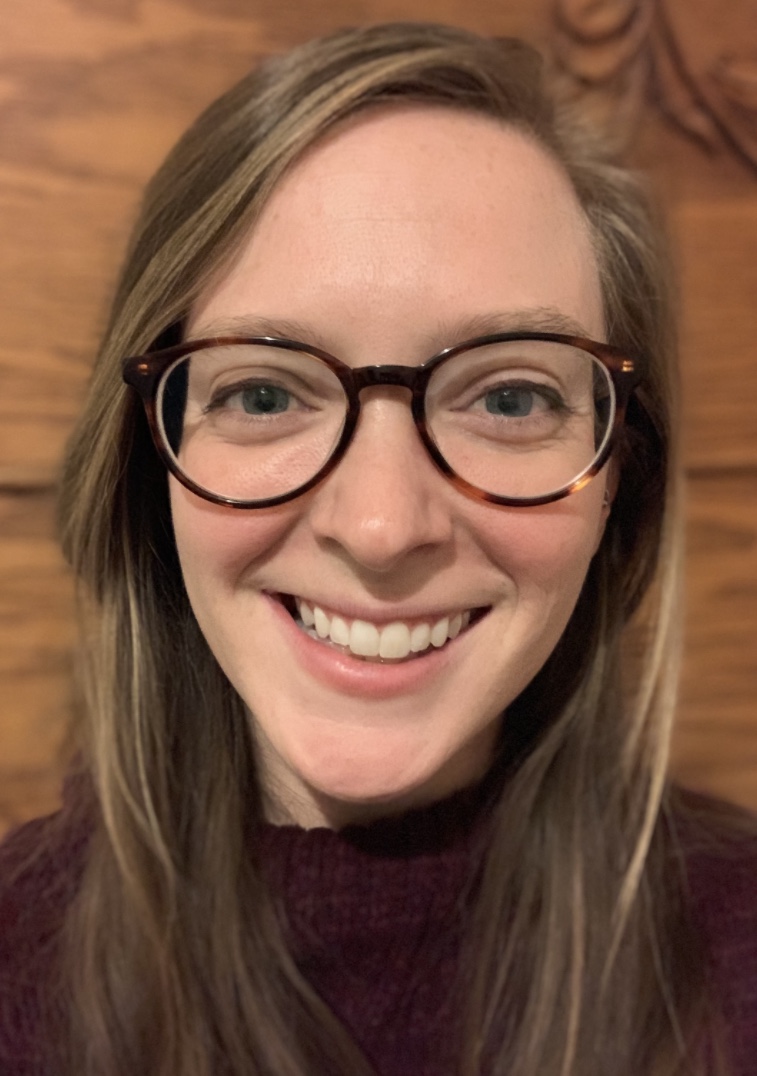SAAM spotlight: Liz Cozzati, Safe Harbor

In recognition of Sexual Assault Awareness Month (SAAM), the VCU School of Social Work is highlighting some of our alumni who work with survivors. Liz Cozzati (M.S.W.’16/SW), LCWS, is a sexual and domestic violence counselor at Safe Harbor.
How prevalent are cases of interpersonal or intimate person violence in the populations you work with?
Folks who have experienced interpersonal violence is the population we work with, so it’s every case. Safe Harbor serves survivors of sexual and domestic violence and human trafficking. This includes children ages 5 and up who have witnessed domestic violence, and children ages 13 and up who have experienced sexual violence themselves.
What services or programs do you offer to support those who have experienced this violence and to try to prevent this violence from happening?
Safe Harbor does its best to provide comprehensive services. We offer individual and group counseling, court advocacy, hospital accompaniment, shelter services, a pantry, case management, and outreach and education. We also have several bilingual Spanish-speaking staff helping with counseling, case management and court advocacy.
In my role at the agency I provide both individual and group counseling. In terms of group therapy I have facilitated a DBT (Dialectical Behavior Therapy) skills group at our trafficking shelter, a support group for adult male survivors of childhood sexual abuse, a support group for parents of children who have been sexually abused, and trauma support groups at the Henrico County Jails.
While counseling may be seen more as intervention than prevention, I think it can be both, as we know that trauma is often intergenerational, and therefore I believe that healing has an inherent ripple effect.
What supports and/or policies would help your organization?
We obviously always need funding for our work. But perhaps the biggest issue is funding and resources beyond our organization. Many of our clients struggle financially, often due to the violence they’ve experienced. So policies aimed at basic needs issues, such as access to affordable housing, healthcare and childcare, would have a huge impact on the work we do. When we consider Maslow’s Hierarchy of Needs, there is only so much healing from trauma one can do when they’re worried about feeding their kids. In fact, basic needs issues may be the No. 1 reason why someone stays in an abusive relationship.
What opportunities exist at your organization for volunteers, donations or other community assistance?
There are several volunteer and donation opportunities. Volunteers may help out around our community office in various capacities, including administrative duties, stocking and organizing our pantry, and providing childcare for our clients while they are in session. There are also other volunteer opportunities with our court advocacy team, at our shelters, through our hospital advocacy program, and with outreach and education.
We also accept donations of non-perishable food items, full-sized toiletry items, and other household items such as paper towels, toilet paper, and cleaning supplies.
What is the value and role of social workers in regard to interpersonal/intimate person violence?
Social workers play a pivotal role in the intervention and prevention of interpersonal violence. Through our education and training, we not only have the skills to provide direct clinical care, but are also able to step back and understand the issue as a whole through a systems approach.
I may work primarily in a micro sense as a therapist, but often employ a more macro lens when considering the social justice and cultural issues that impact this field and population. It all matters, and I believe that social workers are uniquely equipped to see and make those connections.
ABOUT SAFE HARBOR
Safe Harbor supports those who are experiencing or have experienced domestic violence, sexual violence, or human trafficking, and works from a trauma-informed and empowerment-focused lens.
Phone: (804) 249-9470
24-hour helpline: (804) 612-6126
Email: info@safeharborshelter.com
Address: 2006 Bremo Road, Suite 201, Richmond, VA 23226